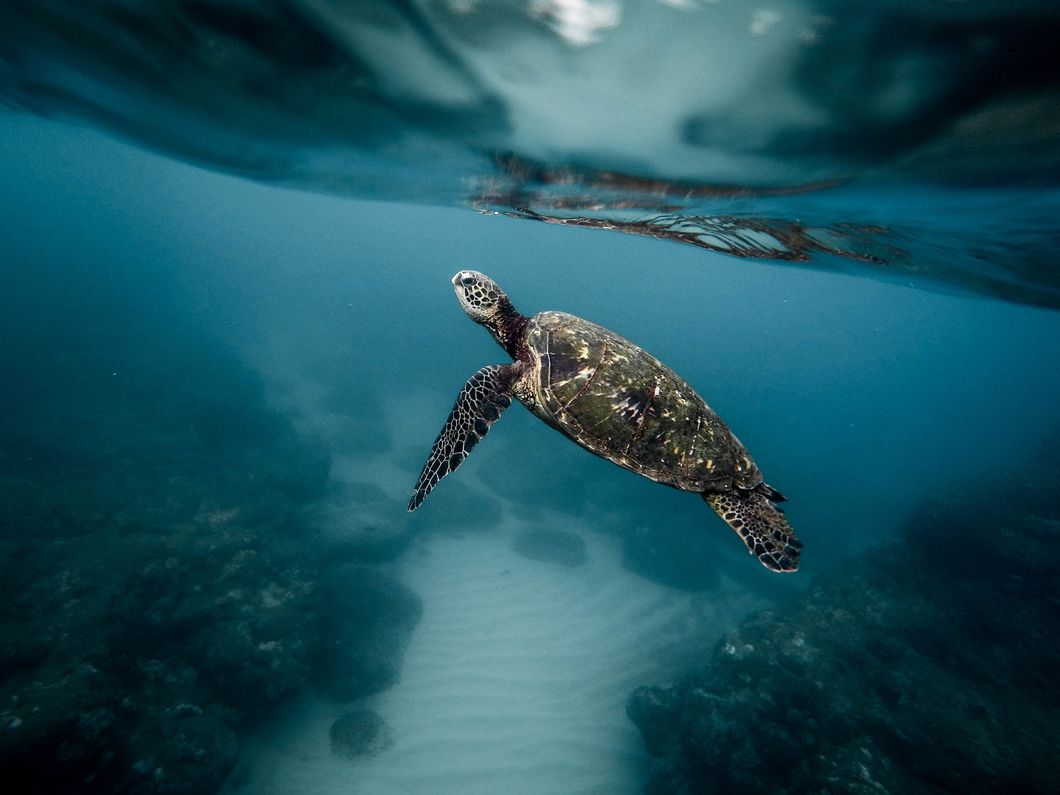Marine mammals such as dolphins, whales, and seals have captured the hearts of millions of people all over the world. But if we're not careful about how we treat their environment, they may not be around for much longer.
Here are some ways you can help protect our marine life friends!
1. Be beach-friendly.
Whether you are at the beach to surf, swim, or just relax, always clean up after yourself. Explore and appreciate the ocean without interfering with wildlife or removing rocks or coral. If you really want to make a difference, start patrolling the beach area, and help pick up any trash you see lying around. Maybe even see if you can gather a group of people who will do it with you!
Also, don't take wild fish or hermit crabs away from their homes! They're not likely to live very long if they're taken away from their natural habitat. Also, never release any aquarium fish into the ocean or other bodies of water- a practice that can be very harmful to them.
2. Use fewer plastic products.
Plastic can end up as ocean debris, which contributes to habitat destruction and entangles and kills tens of thousands of marine animals each year.
Many marine animals (such as sea turtles) mistake plastic waste for a viable food source, sometimes causing blockages in their digestive system. Though the declining sea turtle populations in oceans are due to a variety of reasons, plastic pollution plays a significant role. They eat things like jellyfish and are very likely to mistake a plastic straw for a jellyfish snack.
Also, don't ever release balloons- just pop them and throw them out. If you release them, they are a danger to marine wildlife who can accidentally swallow them because they mistook them for food.
3. Limit activities that can alter an animal's environment.
Worldwide, dolphins face a variety of impacts that threaten their very existence- most of which are impacts of human activities. In recent history, the Yangtze river dolphin was declared extinct due to its river habitat being obstructed by the building of dams and the invasion of boat traffic.
When you are in the animals' natural habitat, be careful not to leave behind or do anything that could cause serious harm to their environment. Clean up after yourselves, and don't leave behind fishing wires, hooks, trash, or anything else.
4. Advocate for oil spill clean-up.
Going along with the above statement, oil spills can be caused not only by equipment breaking down but also by people making mistakes or just being careless. Oil spills into rivers, oceans, and bays are often caused by accidents involving tankers, pipelines, storage facilities, drilling rigs, refineries, and barges.
Most oils float, so the animals most affected sea otters and sea birds that are found on the sea surface or on shorelines if the oil comes ashore. During most oil spills, seabirds are harmed and killed in greater numbers than any other kinds of creatures. If heavy oils get into the feathers of birds, they may die of hypothermia for losing their ability to keep themselves warm. This same effect is observed with sea otters. Sea otters can easily be harmed by oil since their ability to stay warm depends on their fur remaining clean. When oil remains on the beach for a while, other creatures, such as snails, clams, and terrestrial animals may suffer too.
Many light oils, such as gasoline and diesel, are considered to be toxic. They can kill animals or plants and they are also dangerous to humans who breathe their fumes or get it on their skin.
Go online to learn more about oil spills, and what you can do to help!
5. Lesson your carbon footprint.
Because of ocean acidification, global warming has been a hot topic in the ocean world. When acidity of the ocean increases, it can cause devastating impacts on marine life, including plankton, corals, shellfish, and the animals that eat them.
The vast majority of the air we breathe comes from the oceans. That's why we say "if the oceans die, we die."
Marine mammals like the vaquita dolphin (only 30 left in existence due to illegal fishing in the Gulf of California) are not much different than humans. They know when they are in trouble, and they get scared.
Start researching online today to see how you can help!

















